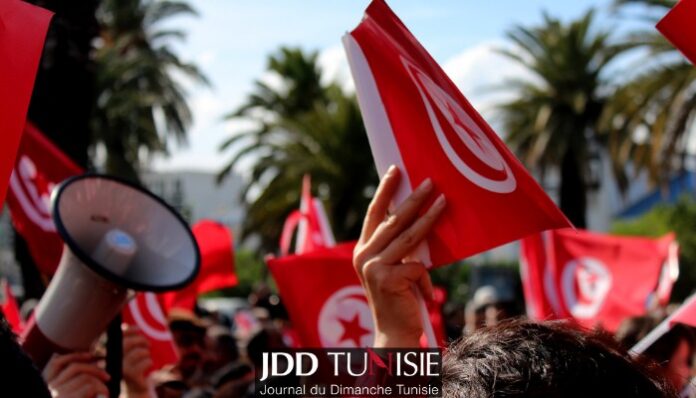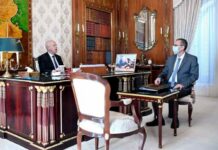After the decisions of the President of the Republic, Kais Saied, related to imposing exceptional measures, including the suspension of Parliament, the lifting of immunity from its deputies, and the suspension of the 2014 constitution, the Tunisian street is witnessing field and intellectual divisions between supporters and opponents of these measures.
Some observers believe that these protests could lead to the division of the Tunisian people which can lead, in this case, to a civil war.
In this context, the political analyst Sleh Eddine Jourchi explained to “JDD Tunisie” that the Tunisian street is diverse , due to the revolution and the various partisan trends, but the process of division now in Tunisia has begun to take a worrying form.
Jourchi indicated that if this division will continue and be embodied on the ground through repeated rallies by the pro- and opposing parties, it could lead to a collision between these two parties, explaining that in the event of this collision, Tunisia is not only threatened by political instability, but it may also become threatened by the phenomenon of violence. The political exchange between the two different parties.
He added, “For this reason, I think that the President of the Republic is required at this stage to intervene to protect national unity, because national unity may at one moment become threatened in its foundations and strength, which threatens the country to enter into a violent conflict between its Tunisian civil parties.”
Tunisia threatened by civil war?
Our interviewer answers that “political violence could threaten the outbreak of civil war, if it recurs. But it is unlikely in Tunisia at this time.”
He continued, “Political violence is linked to the absence of a government trying to bring the parties together, and it can also be fueled by slips and deviations at the street level, and these reasons make it develop in a dangerous direction.”
It should be noted that, the political violence represented 13 percent of violence cases in Tunisia, followed by violence in the public sphere with 9.7 percent, economic violence with 3.2 percent, and the largest percentage was criminal violence with 71 percent during the year 2021, according to the Tunisian Forum for Economic and Social Rights.
In the same context, Jourchi added “Officials, the media, and all Tunisian elites should call for the protection of the Tunisian people from falling into this cursed war in which several other peoples have been implicated.”
Political actors in Tunisia continue to call for protests and reject the opposite opinion, in defense of their opinions and positions in the absence of a legislative authority and a prime minister and the lack of clarity in the country’s political map.











